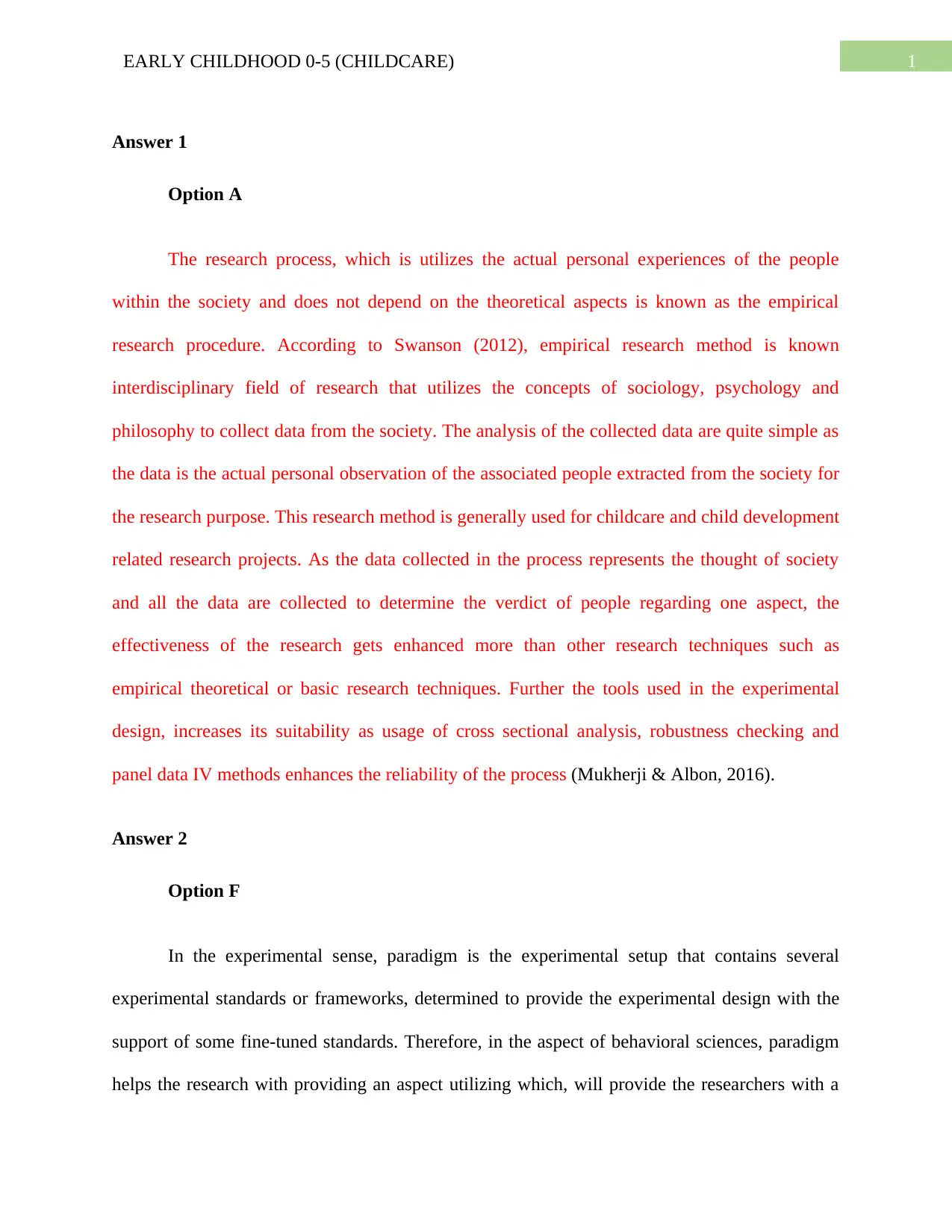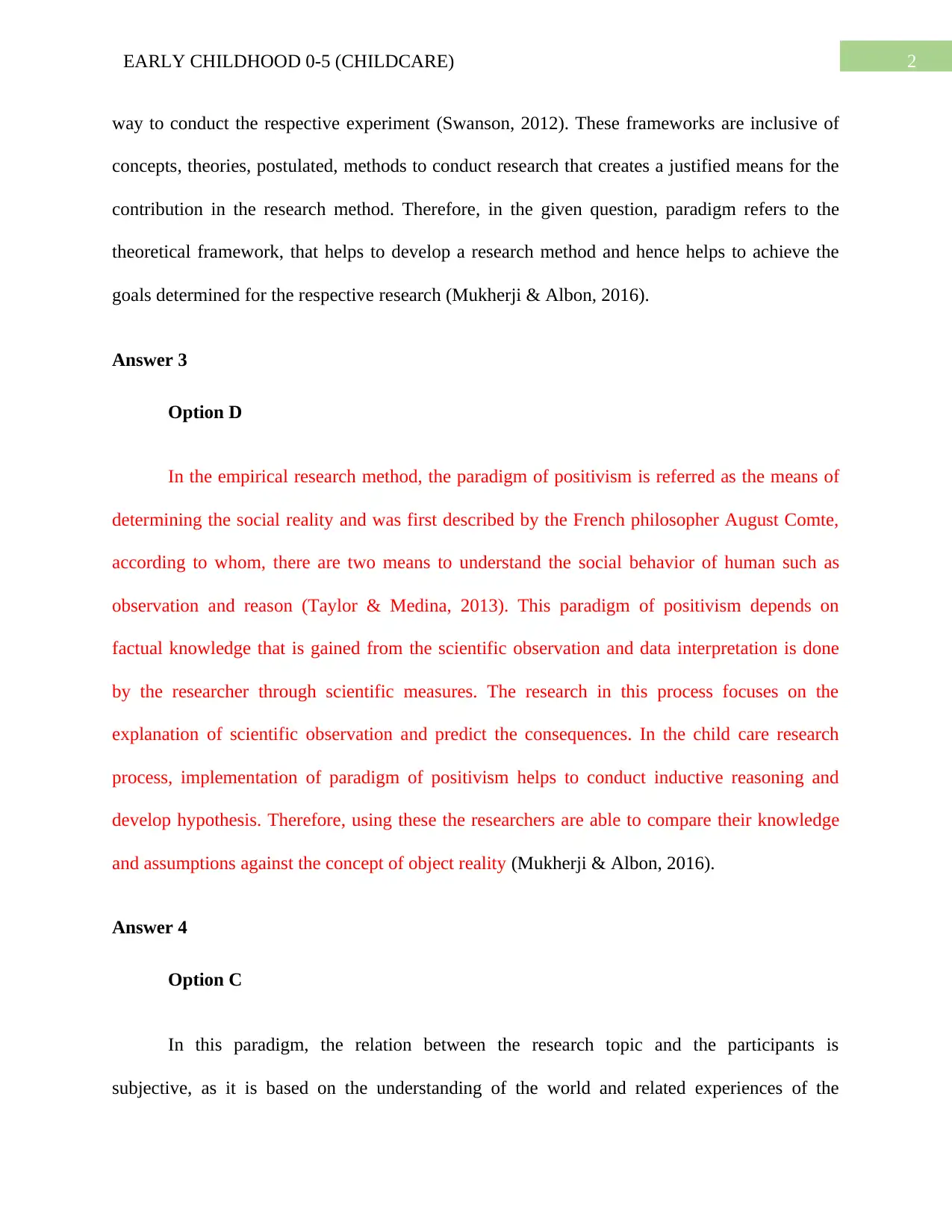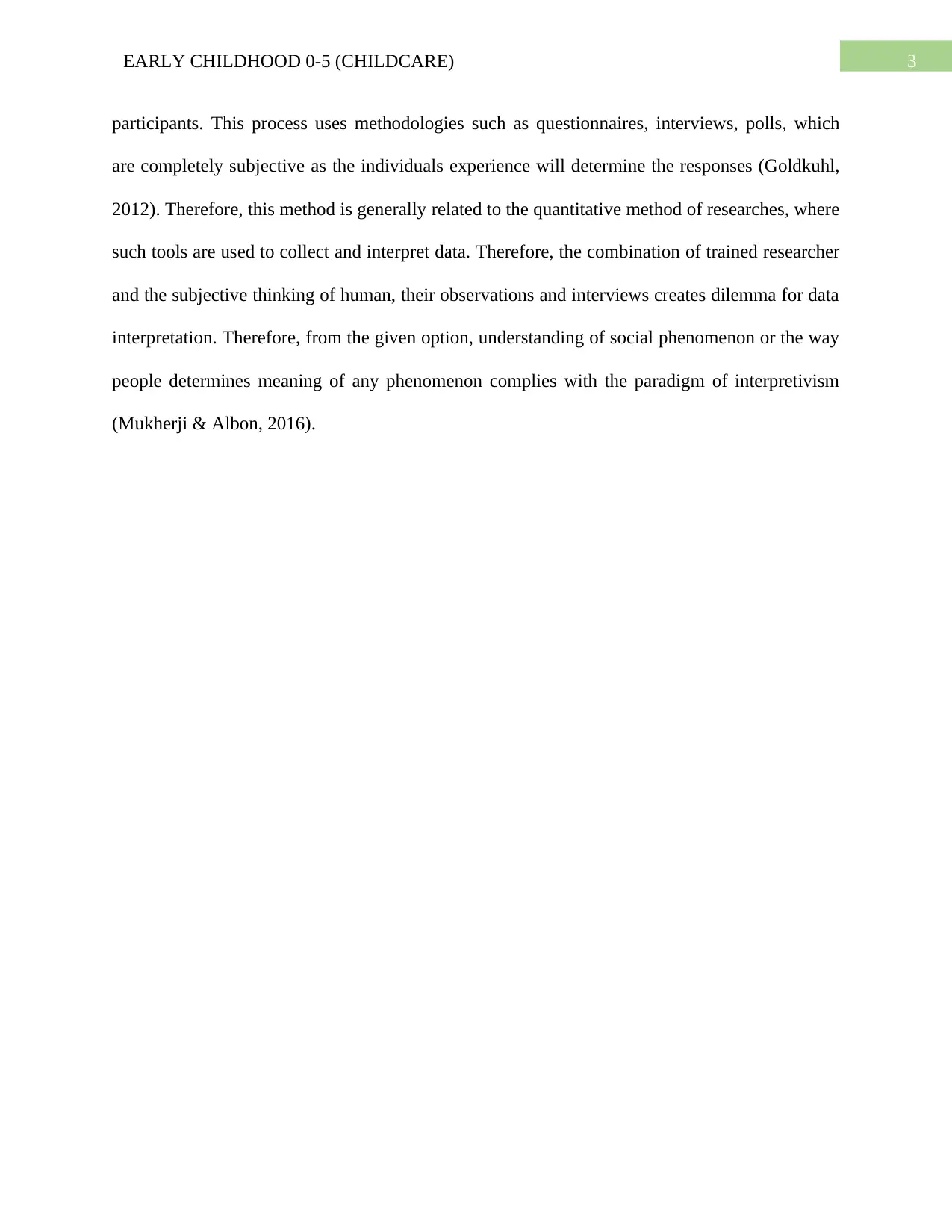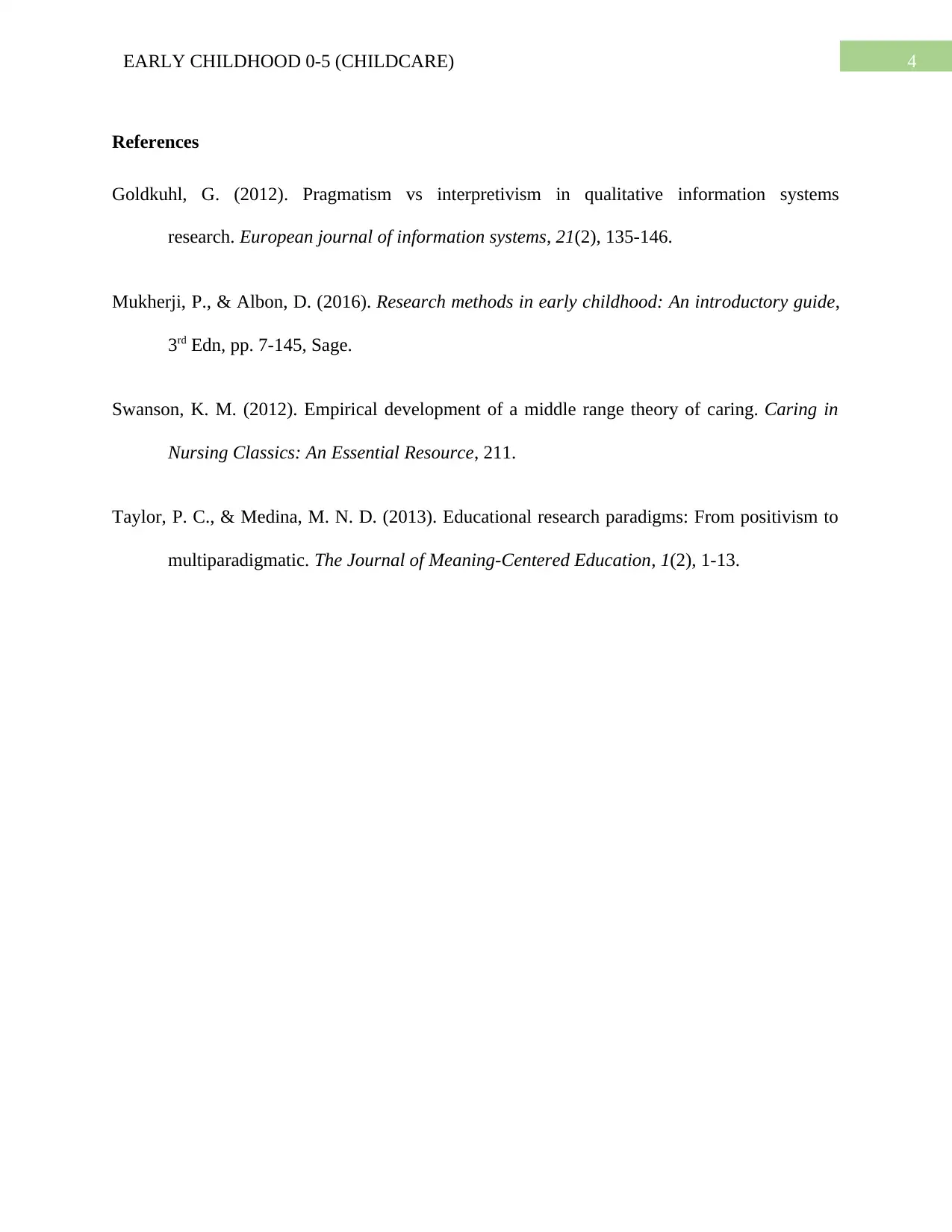University Childcare: Early Childhood 0-5 Module 1 Quiz
VerifiedAdded on 2021/04/17
|5
|822
|99
Quiz and Exam
AI Summary
This document presents the solutions to a quiz on early childhood development and childcare. It addresses key concepts such as empirical research, explaining its use of personal experiences and its interdisciplinary nature, including sociology, psychology, and philosophy. The document also defines and explains the concept of a paradigm within an experimental context, and how it provides a framework for research in behavioral sciences. Further, it explores the paradigm of positivism within the empirical research method, discussing its reliance on observation and reason. Finally, the document explains the paradigm of interpretivism, highlighting its focus on subjective understanding and the use of methodologies such as questionnaires and interviews to understand social phenomena. The quiz solutions are supported by references to relevant academic literature.
1 out of 5









![[object Object]](/_next/static/media/star-bottom.7253800d.svg)